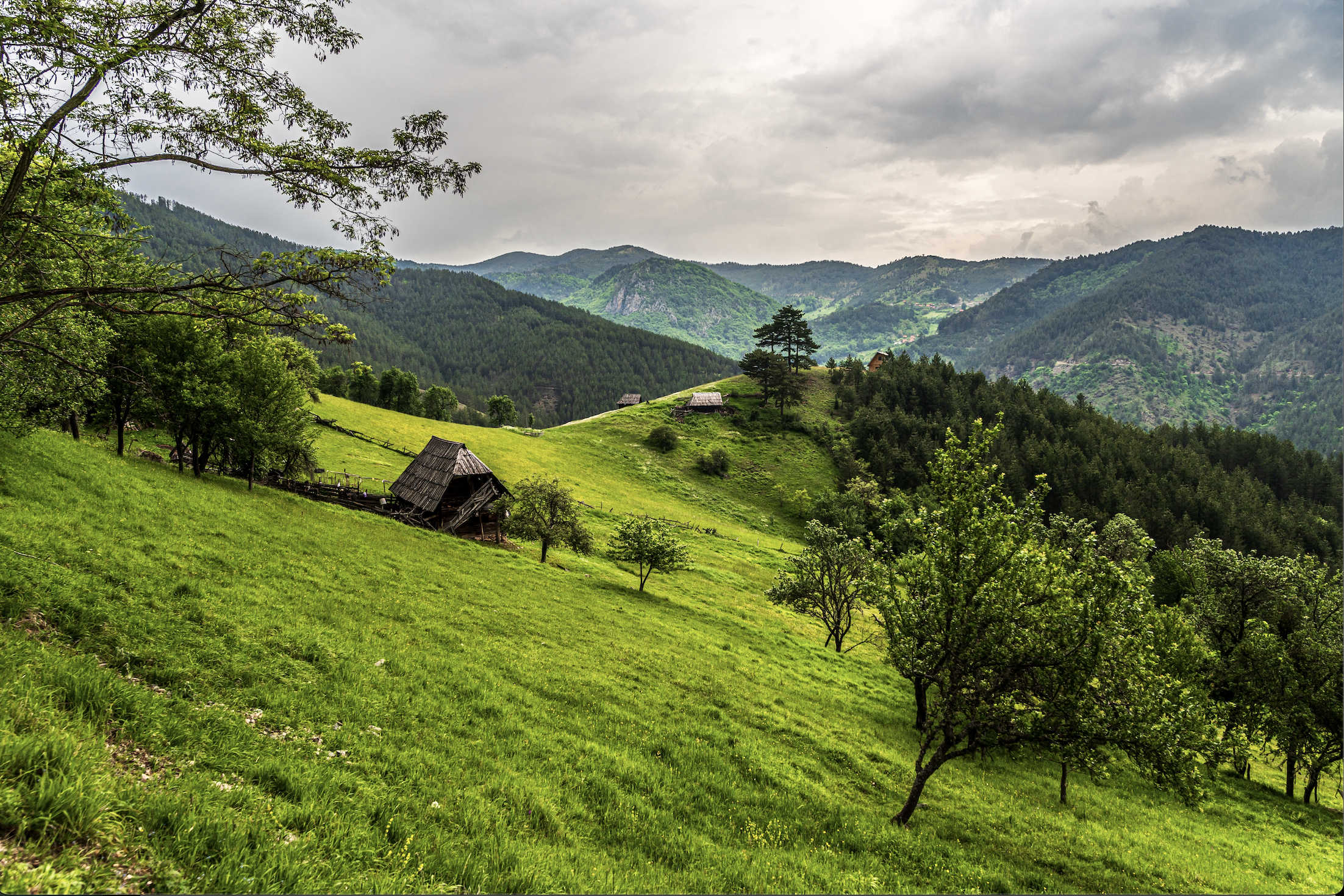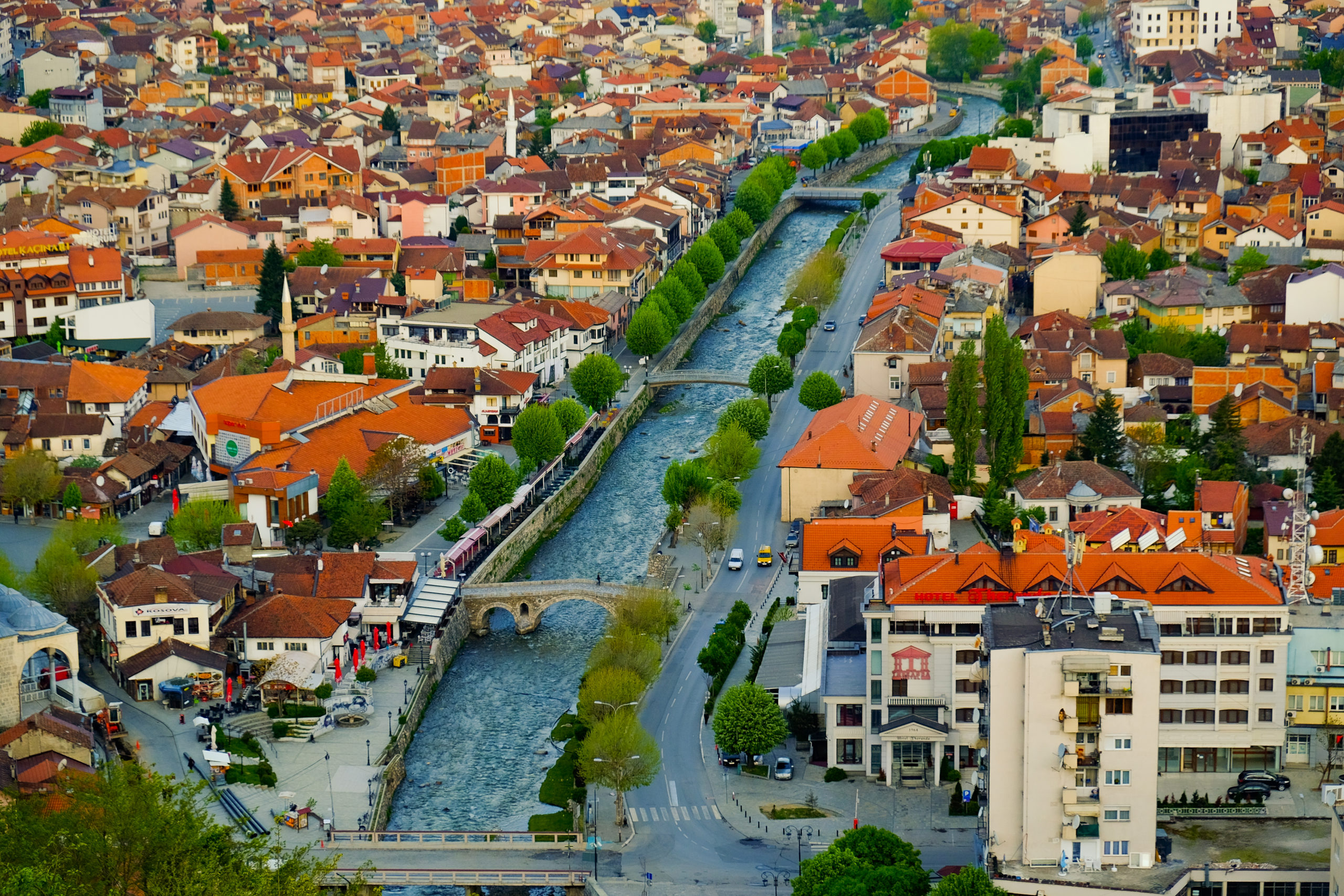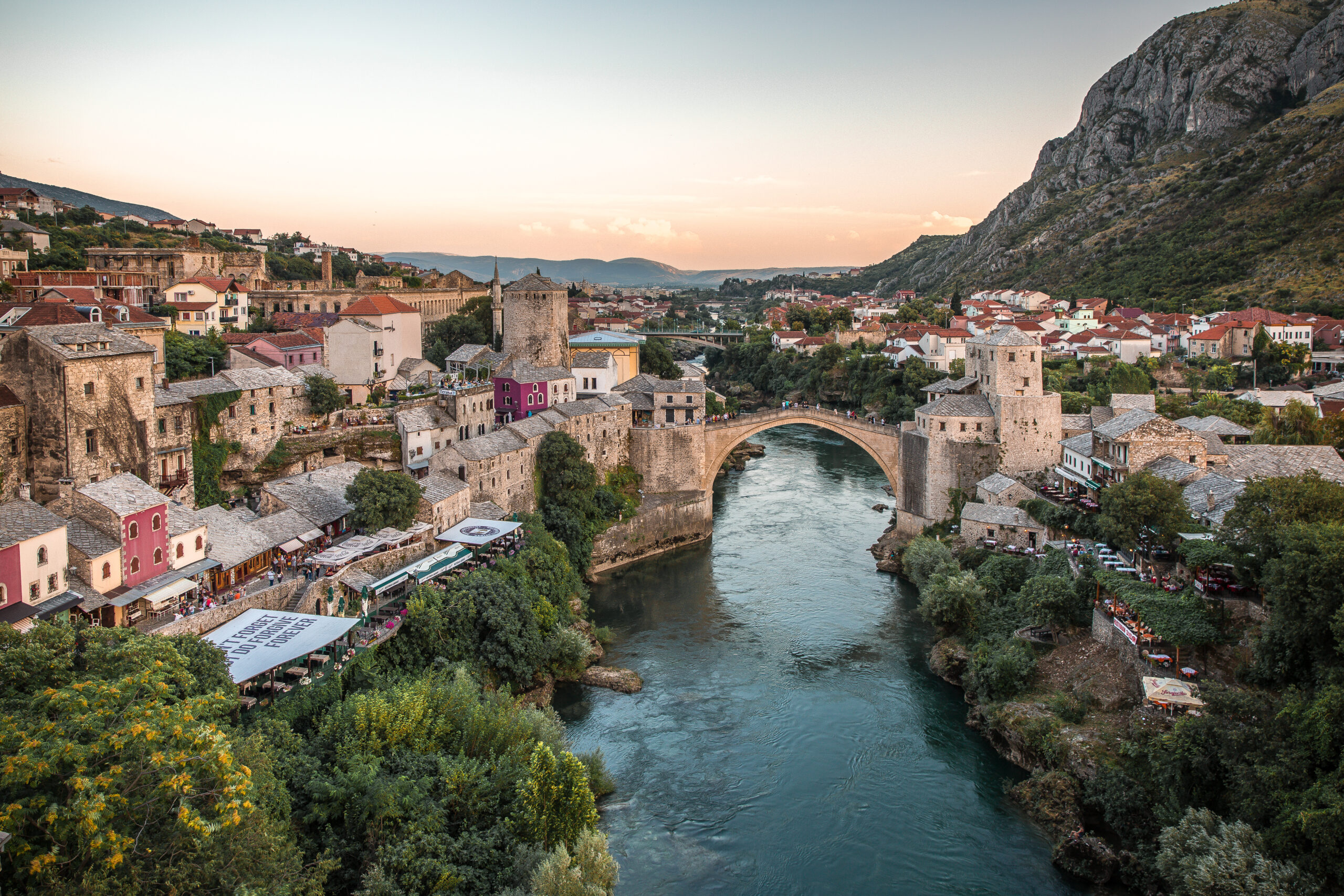Strategic Analysis Balkan Brief
Review of July 2024
Petra Bošková, Matúš Vicen, Aneta Migátová, Simona Škríbová, Barbora Tomanová

Photo: Shutterstock.com
Albania
Protests Erupt in Tirana Demanding the Resignation of Prime Minister Edi Rama
In recent days, Tirana, the capital of Albania, has been the epicentre of large-scale anti-government protests, with thousands of citizens taking to the streets to demand the resignation of Prime Minister Edi Rama. The demonstrations, which began on July 13, have been marked by clashes between protestors and police, including the use of Molotov cocktails and stones at government buildings.
The unrest was sparked by widespread dissatisfaction with Rama’s administration, which has been in power since 2013. Protestors accuse the Prime Minister of corruption and mishandling of the economy. The opposition Democratic Party (PD), led by general secretary Flamur Noka, has been a vocal participant in the protests, aiming to showcase a united front against what they describe as Rama’s dictatorial governance.
A significant trigger for the protests was the detention of opposition leader and former Prime Minister Sali Berisha, who has been under house arrest since December 2023. Demonstrators are also demanding his release, viewing his arrest as a politically motivated act by Rama’s government. During the protests, the demonstrators targeted the Prime Minister’s office, which was heavily guarded by police. Despite the tension and the aggressive tactics employed by some protestors, there have been no reports of serious injuries or significant property damage. Meanwhile, Prime Minister Rama was on an official visit to Turkey, meeting with President Recep Tayyip Erdogan as the unrest unfolded.
These protests are part of a larger wave of discontent that has periodically surged in Albania, often coinciding with significant political anniversaries. The latest demonstrations occurred on the 33rd anniversary of the fall of Albania’s communist regime, symbolising a call for renewed democratic reforms and transparency. The situation remains volatile, with the government urging calm while opposition leaders vow to continue their fight against what they see as an increasingly authoritarian regime.
Sources:
- EuroNews, “Protesters in Tirana – Albania Demand Resignation of PM Edi Rama”, https://www.euronews.com/my-europe/2024/07/13/protesters-in-tirana-albania-demand-resignation-of-prime-minister-edi-rama
- Kosova Press, “Protesters throw Molotov cocktails near the prime minister’s office during the opposition protest in Albania”, https://kosovapress.com/en/protestuesit-hedhin-molotov-prane-kryeministrise-ne-protesten-e-opozites-ne-shqiper
- Albanian Daily News, “Hundreds Join Opposition Protest in Main Boulevard”, https://albaniandailynews.com/news/hundreds-join-opposition-protest-in-main-boulevard-we-are-majority
Bosnia and Herzegovina
Republika Srpska Modifies Banking Laws to Circumvent US Sanctions
The National Assembly of Republika Srpska, a Bosnian Serb entity, has revised its Investment-Development Bank (IDB) legislation in response to US sanctions. These sanctions had previously left sanctioned individuals and companies within Republika Srpska without access to banking services.In an urgent session on July 4, the assembly passed amendments to the Law on the Investment-Development Bank, enabling the IDB to open bank accounts for sanctioned entities, handle domestic payments, and accept deposits. This legislative move is part of a broader package that includes changes to the Law on Banks of Republika Srpska and the Law on Domestic Payment Transactions.
Srdjan Mazalica, a member of the ruling Alliance of Independent Social Democrats (SNSD), stated that these legal adjustments aim to strengthen the position of Republika Srpska. However, opposition MP Nebojsa Vukanovic criticised the changes, labelling them as a “desperate and inadequate reaction” to the US sanctions. He mockingly suggested the new law be named after the family of Milorad Dodik, the prominent RS leader.
In response to inquiries, the US embassy in Sarajevo reiterated that sanctions could target any institution, private or public, that offers material support to sanctioned entities. The US Treasury’s Office of Foreign Assets Control (OFAC) has emphasised that financial institutions engaging with sanctioned individuals or entities risk exposing themselves to sanctions.
The OFAC’s recent blacklist additions, announced on March 13, included three individuals and entities. It cautioned that entities involved in transactions with sanctioned parties could face penalties. Following these developments, numerous bank accounts belonging to sanctioned individuals and companies from both the Federation of Bosnia and Herzegovina and Republika Srpska have been closed.
On June 18, OFAC further sanctioned two individuals and seven entities linked to a network of private companies overseen by Republika Srpska President Milorad Dodik and his son, Igor. According to an analysis by the Balkan Investigative Reporting Network (BIRN), three of the seven sanctioned companies considered significant revenue sources for the Dodik family have received public contracts totalling over 250 million EUR.
These legislative changes by Republika Srpska’s assembly are seen as a strategic attempt to mitigate the impact of the US sanctions and maintain economic stability within the entity. However, they have sparked a debate on the effectiveness and ethics of such measures in the face of international pressure.
Sources:
- Azem Kurtic, Balkan Insight, “Bosnian Serb Entity Changes Banking Laws to Evade US Sanctions”, https://balkaninsight.com/2024/07/04/bosnian-serb-entity-changes-banking-laws-to-evade-us-sanctions/

Photo: Shutterstock.com
Montenegro
Montenegro Court Clears Defendants in 2016 ‘Coup Plot’ Retrial
On July 12, the Montenegrin Higher Court acquitted former Democratic Front leaders Andrija Mandic and Milan Knezevic, along with other defendants, who had been charged with plotting a coup during the 2016 parliamentary elections. The court cited insufficient evidence as the reason for the acquittals.
In a 2019 verdict, the court had sentenced 13 individuals, including Mandic, Knezevic, two Russian intelligence officers, and eight Serbs, to up to 15 years in prison for allegedly attempting to overthrow the pro-Western government led by the Democratic Party of Socialists and prevent Montenegro from joining NATO.
In 2021, the Appeal Court annulled these convictions, directing the Higher Court to conduct a retrial. Mandic and Knezevic, who were opposition leaders at the time of the indictment, claimed the trial was politically motivated. Today, both hold significant political positions: Mandic is the President of Montenegro’s Parliament, and Knezevic is a member of Parliament.
During the retrial, Judge Zoran Radovic explained that the prosecution failed to prove that Mandic and Knezevic committed the crimes they were accused of. The judge noted that the longest sentences in the original trial for attempted terrorism were given to Russian nationals Eduard Sishmakov and Vladimir Popov, who received 15 and 12 years, respectively, for organising a criminal enterprise and attempting terrorism. However, there was no evidence that Mandic and Knezevic had interacted with these alleged spies.
Judge Radovic highlighted that no weapons or equipment intended for the alleged coup ever entered Montenegro, except for two Lenovo mobile phones. He emphasised that for a conviction, the facts must be indisputable, which was not the case in this trial.
The prosecution has not yet decided whether to appeal the acquittal. Miroje Jovanovic, the defence lawyer, stated that the verdict was logical and rational. He promised that if the prosecution appeals, the defence will respond comprehensively.
The initial indictment against Mandic and Knezevic, filed in 2017, was led by then-chief special prosecutor Milivoje Katnic and his deputy Sasa Cadjenovic. Both have since faced charges related to organised crime and abuse of office. Katnic has been in custody since April this year, while Cadjenovic, released after 19 months of pretrial detention, continues to defend his freedom. The current prosecution, led by Vladimir Novovic, has maintained the original allegations in the coup plot case.
Sources:
- Borislav Visnjic, Balkan Insight, “Montenegro Retrial Acquits All Defendants in ‘Coup Plot’ Case”, https://balkaninsight.com/2024/07/12/montenegro-retrial-acquits-all-defendants-in-coup-plot-case/
Kosovo
European Commission included Kosovo Serbs with Serbian passports in the EU visa-free regime
On July 18 2018, Kosovo fulfilled all criteria to be part of the EU visa-free club, and almost six years later, Kosovo citizens were allowed to travel to the European Union without further restrictions and EU citizens vice-versa. This step was part of the bigger visa Balkan initiative of the European Commission (EC) to make the Balkans more accessible. This leads us to the issue EC has recently resolved by including Kosovo Serbs holding passports issued by Serbia in the visa-free regime.
EC, by including Kosovo in the visa-free regime, has originally excluded Kosovo Serbs holding, in Kosovo, illegal Serbian passports issued by Serbia’s Directorate for Kosovo and Metohija. According to the advisor to the Deputy Prime Minister of Kosovo, this step of the EC is seen as violating the Kosovo territorial integrity and sovereignty because these passports continue to be illegal and unacceptable in Kosovo. He emphasised that it would undermine the already complicated integration process of Kosovo Serbs and that the exclusion of Serbian illegal passport holders from the visa-free regime was beneficial for the integration process. On the other hand, several civil rights NGOs representing Serbs in Kosovo claimed that it would improve the lives of Serbs residing in Kosovo.
However, Kosovo Serbs have been, to some extent, hostages of this situation since 2009, when Serbia was required to meet the criteria for the EU visa-free regime. Before 2009 Serbian institutions had been issuing passports for Kosovo Serbs without any restrictions or complications. Then, the special institution, Serbia’s Directorate for Kosovo and Metohija, had to be created, and the availability getting Serbian passports for Kosovo Serbs became less inclusive since the institution is located only in Belgrade. Additionally, since 2009, these passports have been excluded from the visa-free regime. This state lasts to this day even after Kosovo became part of the visa-free regime. Still, with the European Commission’s new decision, Kosovo Serbs can travel without any further restrictions. Yet, it will continue to be the point of contention between Serbia and Kosovo.
Sources:
- Antigone Isufi and Milica Stojanovic, Balkan Insight, EU Scraps Visa Requirement for Kosovo Serbs With ‘Special’ Passports, https://balkaninsight.com/2024/07/22/eu-scraps-visa-requirement-for-kosovo-serbs-with-special-passports/
- Milica Stojanovic, Balkan Insight, Kosovo Serbs’ Freedom of Movement Curtailed by Serbia, https://balkaninsight.com/2019/09/09/kosovo-serbs-freedom-of-movement-curtailed-by-serbia/
- Directorate-General for Migration and Home Affairs, Visa-free travel for Kosovo citizens to the EU, https://home-affairs.ec.europa.eu/news/visa-free-travel-kosovo-citizens-eu-2024-01-03_en

Photo: Shutterstock.com
Serbia
Serbia and EU Sign a Strategic Partnership on Critical Raw Materials Including Controversial Lithium-Mining Project
On July 19, Serbia and the EU organised a vital raw materials summit in Belgrade, which was attended by high-level officials such as the German Chancellor Olaf Scholz, European Commission Vice President Maroš Šefcovič and Serbian President Aleksandar Vučić. The two parties agreed on sustainable raw materials, battery value chains and electric vehicles. However, the memorandum of understanding, signed during the summit, will permit a huge lithium-mining project that provoked widespread protests from Serbian environmentalists in the past to re-launch despite prevailing environmental concerns.
Since 2021, the European Union has formed relationships with 14 nations to ensure the supply of such key raw materials, including Norway, Argentina, Zambia and Ukraine. By 2050, the bloc hopes to have transitioned from fossil fuels to renewables and clean technology, becoming carbon neutral. An essential component of the global transition to clean, sustainable energy is lithium, which, among other uses, is an essential part of batteries for electric vehicles. As Serbia is home to one of the world’s greatest lithium reserves, the new partnership would not only enable the building of an estimated 1.1 million electric vehicles annually but also assist in closing some gaps between the EU and its candidate Western Balkan country.
The European Commission says that the partnership “aims to support the development of new local industries and high-quality jobs along the electric vehicle value chain in full respect of high environmental and social standards while addressing the concerns of local communities with full transparency”.
The lithium-mining project in the Jadar Valley region, led by Rio Tinto corporation, is expected to bring €6 billion in foreign direct investment to Serbia, potentially creating jobs and boosting the economy. However, for years, it has faced strong opposition from residents and Serbian environmental activists due to water and land damage concerns.
The dispute has been fueled by a recent Constitutional Court decision (July 11 2024) ruling that the government’s 2022 decision to terminate the mining project, made after months of protests, was unlawful. In addition, according to media investigations, Rio Tinto had allegedly spent at least 1.2 million EUR on buying land in Serbia even after the project was formally cancelled.
The strategic deal undoubtedly supports the EU’s objective of reducing reliance on Chinese lithium imports and establishing a domestic supply chain for battery components. The attendance of senior banking executives and industry experts at the high-level signing event demonstrates international interest in the project and emphasises its geopolitical importance. However, while the collaboration has enormous economic potential for Serbia and aligns with the EU’s green transition aims, it also presents obstacles in reconciling economic development with environmental preservation and public opinion.
Sources:
- “EU and Serbia sign strategic partnership on sustainable raw materials, battery value chains and electric vehicles.” European Commission. https://neighbourhood-enlargement.ec.europa.eu/news/eu-and-serbia-sign-strategic-partnership-sustainable-raw-materials-battery-value-chains-and-electric-2024-07-19_en.
- Morina, Engjellushe. “Finding friends: Europe, Serbia, and the lithium catalyst.” European Council on Foreign Relations. https://ecfr.eu/article/finding-friends-europe-serbia-and-the-lithium-catalyst/.
- Stojanovic, Milica. “European Union Agrees Controversial Lithium Mining Project with Serbia.” Balkan Insight. https://balkaninsight.com/2024/07/19/european-union-agrees-controversial-lithium-mining-project-with-serbia/.
- Stojanovic, Milica. “Serbian Court Ruling on Scrapped Lithium Mine Dismays Environmentalists.” Balkan Insight. https://balkaninsight.com/2024/07/11/serbian-court-ruling-on-scrapped-lithium-mine-dismays-environmentalists/.
North Macedonia
Political Turmoil in North Macedonia: Opposition Condemns New Government Moves
North Macedonia has recently been engulfed in political controversy following several key decisions made by the newly elected right-wing government led by Prime Minister Hristijan Mickoski. The opposition Social Democrats have been vocal in their criticism, condemning a major loan agreement with Hungary, the reinstallation of a controversial fence around the government building, and questioning the new government’s commitment to democratic principles and transparency.
On July 12, the Social Democrats condemned the government’s decision to accept a 500-million-EUR loan from Hungary, coupled with a “strategic economic partnership” with Prime Minister Viktor Orban’s government. This agreement was announced during the NATO summit in Washington DC. The opposition claims that the deal hides a political agenda and poses risks to the country’s relationships with international financial institutions like the World Bank and the International Monetary Fund.
Prime Minister Mickoski defended the loan, arguing that it would provide financial stability and support for North Macedonia’s economy, with half of the funds allocated for direct economic support and the other half for municipal capital projects. He also mentioned that this partnership with Hungary could allow North Macedonia to borrow more money in the future under favourable conditions. The loan terms include an interest rate of 3.25 per cent, a three-year grace period, and a 12-year repayment period, which Mickoski boasted as extremely favourable compared to other potential lenders.
However, the opposition highlighted that North Macedonia already has a credit line from the European Bank for Reconstruction and Development with a much lower interest rate of 1.6 per cent, a two-year grace period, and a 12-year repayment period. This raises questions about the necessity and benefits of the new loan from Hungary. Critics argue that the loan agreement is not purely economic but rather a strategic move that strengthens political ties between Mickoski’s government and Orban’s administration.
Further fueling the controversy, the Social Democrats have also criticised the decision to restore a high fence around the government headquarters in Skopje, a symbol of former Prime Minister Nikola Gruevski’s authoritarian rule. The fence, originally erected during political unrest in 2015 to protect the government building from anti-government protests, was removed in 2019 by the previous administration to signify governmental openness. The new VMRO-DPMNE-led government insists the fence’s reinstallation is purely for practical and aesthetic reasons. Nonetheless, the opposition views it as a regressive step towards the authoritarian practices of the past.
These contentious decisions come on the heels of the VMRO-DPMNE’s return to power after the party’s victory in the May 9 elections, which ended seven years of Social Democratic rule. The new government, approved by parliament on June 23, comprises a coalition that includes VMRO-DPMNE, several ethnic Albanian parties, and the left-wing nationalist Znam party. Prime Minister Mickoski has promised significant reforms, including tax cuts, increased pensions, and substantial investment in municipal projects. However, his government’s nationalist stance and scepticism towards agreements with neighbouring Bulgaria and Greece have raised concerns about North Macedonia’s EU accession prospects.
Sources:
- Marusic, Sinisa Jakov. „North Macedonia Opposition Condemns Loan from Hungary.“ Balkan Insight, July 12, 2024. https://balkaninsight.com/2024/07/12/north-macedonia-opposition-condemns-loan-from-hungary/
- Marusic, Sinisa Jakov. „North Macedonia Opposition Slates Return of Fence Around Govt HQ.“ Balkan Insight, July 3, 2024. https://balkaninsight.com/2024/07/03/north-macedonia-opposition-slates-return-of-fence-around-govt-hq/
- Radio Free Europe. „North Macedonia’s Parliament Elects New Right-Wing Government.“ *Radio Free Europe. June 23, 2024. https://www.rferl.org/a/north-macedonia-parliament-government-mickoski/33005997.html.

Contact us